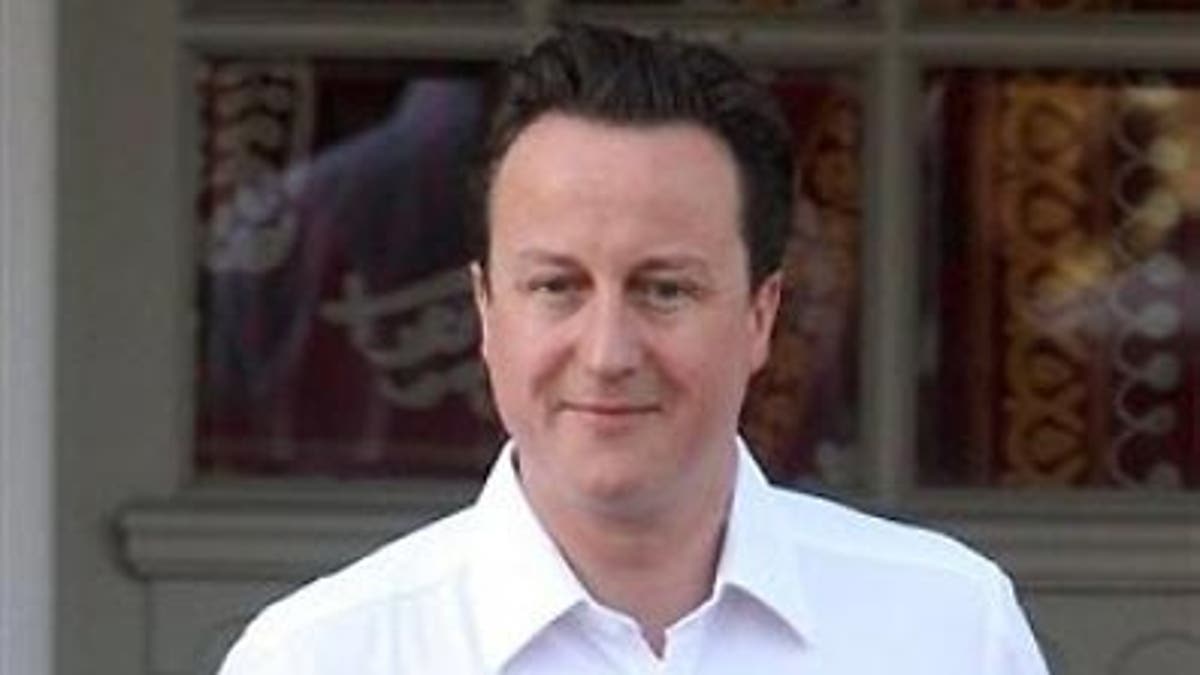
AP
May is a momentous month in British political history. By virtue of the respite it offers from Britain’s legendarily gloomy weather, it has witnessed more than its fair share of elections. And by virtue of the fact that good campaigning weather is also good fighting weather, May marks the most historic handover of power in modern British political history. May 10 is the seventieth anniversary of the beginning of France’s defeat at the hands of the German Army, of Winston Churchill’s entry into Number 10 Downing Street, and of Britain’s salvation.
Churchill’s greatness is now a commonplace. But we have yet to take its full measure. Churchill fought, as he said, for the survival of the West, and in the hope that the United States would, however tardily, enter the battle at Britain’s side. He knew that Britain could not hope to defeat the Nazis alone. He fought to endure, to keep Britain free, to save it as a base from which the full weight of all the Western allies could be brought to bear.
And by enduring, he triumphed. He saved Britain, which with America saved the West, which after generations of struggle on both sides of the Iron Curtain saved the East. Without a free Britain, there was no future for democracy between the Atlantic Ocean and the Urals, and without Churchill, there would have been no free Britain.
But fighting on was not simply a matter of marching forward. Churchill had problems that we do not appreciate today. His base of domestic support was narrow. His fellow Conservatives disliked him almost as much as Labour did. Fighting on required winning the trust of many who detested him. Above all, it meant telling the public the truth about the dangers of Britain’s situation, and gaining their support by being honest, courageous, and optimistic.
Churchill’s other problem was that Britain could only hope to win a long war, but only had enough money to fight a short one. Until Churchill came to power, Britain was husbanding its resources, trying to stretch its dwindling checkbook out as long as possible. The danger of that was obvious: it risked losing now.
Churchill deliberately reversed this strategy. From May 10 on, Britain bought what it needed to buy, and hoped that the future would take care of itself. Thanks to the United States, it did. It was a magnificent gamble, a gamble to maximize Britain’s power in the here and now at the risk of its endurance down the road.
Ironically, seventy years later, David Cameron may face exactly the opposite challenge. Instead of a Britain that has been husbanding its resources, it looks like he will take control of a Britain that has been profligately wasting them. Instead of a Britain that has been prudent to the point of defeat, he will inherit a Britain that next year will have a budget deficit larger than Greece’s. Cameron’s task, once he enters Downing Street, is to reduce spending now in ways that do not damage Britain’s power later.
For there is no doubt that the most dangerous enemy that Britain – and indeed the United States – face in the months and years to come is their own desire to give themselves benefits they cannot afford. With sensible policies, competently administered, the threat of Islamist terrorism and extremism can be mastered, in Afghanistan and around the world. Unless it loses its head, Britain is only as powerless as it wishes to be.
But a bankrupt Britain, battered from crisis to crisis, will find it impossible to sustain these policies. Even today, its armed forces have been relentlessly squeezed by the insatiable demands of Gordon Brown’s mania for social spending. The only difference between Britain and the U.S. in this regard is that Britain is closer to the precipice. Because it began with smaller forces, Britain has even less margin for error.
The closeness of the election may lead Cameron to believe that he too has a narrow margin for error, a narrow political margin. If he accepts that belief, he will fail. The financial crisis is coming. It may be postponed by half measures, but postponement will only saddle the Tories with partial responsibility for the crash.
A plurality of the British people voted Conservative last week, but it was only a plurality. As Cameron tries to form a government, he must draw strength from any and every corner. But this must involve no sacrifice of principle, no retreat from the need to address the crisis at hand, no attempt to simply survive in the short run. Cameron must tell the British people the truth about their financial situation, and do it with bravery and optimism. If he does that, he will apply the true lessons of May 10, 1940 to the very different crisis that Britain faces today.
Theodore Bromund is Margaret Thatcher Senior Research Fellow at the Heritage Foundation.
Fox Forum is on Twitter. Follow us @fxnopinion.








































